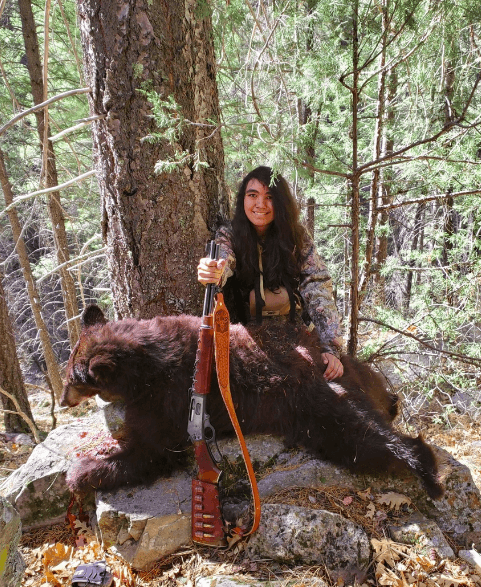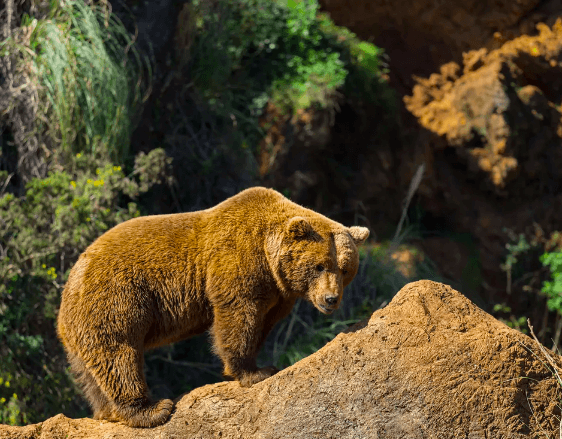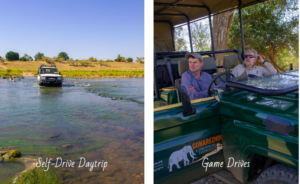
Bear hunting vermont.
Step into Vermont’s untamed woods, where the excitement of bear hunting awaits. Vermont, with its rocky mountains, deep forests, and unspoiled vistas, provides an unparalleled bear-hunting experience.
Vermont has become a sought-after destination for passionate hunters looking for the ultimate challenge, thanks to its enormous bear population and a long-standing heritage of ethical and sustainable hunting tactics.
In this article, we dig into the enthralling world of Vermont bear hunting, investigating the strategies, rules, and experiences that await those who dare to chase the elusive black bear in this magnificent state. So gather your gear, polish your skills, and ready for an exciting excursion into Vermont’s bear hunting paradise.
Bear Hunting Seasons in Vermont explained.

In Vermont, bear hunting season normally lasts many months and is strictly enforced to promote sustainable population control. Here are the specifics for Vermont’s bear hunting season:
Timeframe:
Bear hunting in VT is primarily done during seasons set by the Vermont Fish and Wildlife Department. Because the exact dates might change from year to year, it’s critical to check the official hunting laws for the current season’s dates.
Seasons and Methods
Bear hunting seasons in Vermont are separated into archery, firearm, and muzzleloader seasons. Each season has its own set of rules and ways of hunting.
Archery Season:
During this season, hunters can chase bears with archery equipment such compound bows, recurve bows, or crossbows.
Firearm Season:
The firearm season permits the use of shotguns, rifles, and handguns for bear hunting.
Muzzleloader Season:
During the muzzleloader season, hunters can utilize muzzleloading firearms to pursue bears.
How to Hunt bear in Vermont State Guide.
Bear hunting in Vermont necessitates careful preparation, familiarity with restrictions, and commitment to ethical hunting techniques. Here’s a general guide on bear hunting in Vermont:
Obtain All Required Licenses and Permits:
Before going bear hunting in Vt, be sure you have a valid hunting license as well as a bear license. These licenses are available through the Vermont Fish and Wildlife Department.
Study Bear Behavior and Habits:
Understanding bear habits and environment is critical for hunting success. To discover possible hunting regions, learn about their feeding behaviors, favorite food sources, and daily mobility.
Scout Hunting Spots:
Scout possible hunting grounds ahead of time to discover places with bear activity signals, such as tracks, scat, claw marks on trees, or overturned boulders. Look for regions that have an abundance of food supplies, such as berry patches, oak stands, or beech trees.
Select the Best Hunting Method:
Vermont authorizes bear hunting tactics such as spot-and-stalk, still hunting, baiting, and dog hunting. Choose a way that is compatible with your abilities, tastes, and the laws of the current hunting season.
Equipment & Gear:
Make sure you have the proper hunting gear and equipment, such as a dependable weapon or bow that fits legal criteria and is ideal for bear hunting. Choose high-quality optics such as binoculars to help you locate and recognize bears from a distance.
Scent Control Practice:
Because bears have a keen sense of smell, practicing scent management is essential. Use scent-free soaps and detergents, carefully store hunting equipment, and consider scent-eliminating sprays or apparel.
Follow Safety Measures:
Bear hunting may be hazardous, so always emphasize safety. Hunt with a companion or notify someone of your hunting plans. Carry bear spray, a solid knife, and a method of communication, such as a mobile phone or radio.
Respect Hunting Ethics and Regulations:
Respect hunting laws and ethical values. To achieve a swift and humane kill, avoid shooting beyond your effective range and use clean, ethical shot placement.
Field Dress and Transportation:
After capturing a bear, do the requisite field dressing and corpse handling procedures. Learn about the rules and requirements for tagging, reporting, and transporting harvested bears. Hunting ebikes are the best method of transportation from the forest.
Continual Self-Education:
Keep up to date on hunting rules, changes in bear population management, and best practices by using the Vermont Fish and Wildlife Department’s hunting materials and attending hunter education seminars on a regular basis.
Bear Hunting Locations in Vermont
Vermont has a wide range of bear hunting opportunities around the state. Here are some popular bear hunting spots in Vermont:
National Forest of the Green Mountains:
The Green Mountain National Forest, which spans a huge chunk of southern and central Vermont, offers several possibilities for bear hunting. The forest has a variety of ecosystems and huge wilderness regions, allowing hunters to chase bears in a gorgeous and lonely location.
Northeast Kingdom
Vermont’s Northeast Kingdom region, which includes counties such as Essex, Orleans, and Caledonia, is recognized for its large wooded expanses and plentiful animal populations, including bears. This region has a combination of public and private property where hunters can locate good bear habitat.
Chittenden and Rutland Counties:
These counties in western Vermont have extensive wooded regions and rocky terrain, making them ideal for bear hunting. In Rutland County, bear hunting options include the Chittenden Reservoir Wildlife Management Area and the Green Mountain National Forest.
Bennington County:
Bennington County, in southern Vermont, has a mix of agricultural fields, woodland regions, and mountains that provide appropriate bear habitat. Bear hunting chances may be found in places like the Green Mountain National Forest and the Lye Brook Wilderness.
Wildlife Management Areas:
Throughout Vermont, there are various Wildlife Management Areas that give bear hunting chances. Lamoille River WMA, Winhall Brook WMA, and others may be worth researching for bear hunting.
It is crucial to note that various regions may have different restrictions, seasons, and hunting tactics. It is best to consult the Vermont Fish and Wildlife Department‘s official hunting rules to guarantee compliance and to learn more about specific bear hunting spots in Vermont. When hunting on private land, it is also critical to obtain permission from landowners.
Licenses and Permits of bear hunting vermont.

In order to hunt bears in Vermont, hunters must get the necessary licenses and permits. The following are the primary licenses and permits needed for bear hunting in Vermont:
Hunting License:
All hunters in Vermont, including bear hunters, must have a valid hunting license. This license permits you to hunt a variety of animals, including bears. The hunter must have his or her hunting license with them at all times when out in the field.
Bear Permit:
In addition to the hunting license, hunters must get a second bear license for bear hunting. During the approved bear hunting seasons, the bear license allows the hunter to pursue and harvest bears.
Tags and Reporting:
Successful bear hunters must tag their harvested bears promptly with the issued tag, which is included in their bear license. The tag must be firmly affixed to the bear carcass and must remain there until the bear is processed or transported. In addition, hunters must report their bear kill to the Vermont Fish and Wildlife Department within 48 hours.
Hunter Training:
All first-time hunters in Vermont, including bear hunters, must complete a recognized hunter education course. This course teaches you about hunting safety, rules, ethics, and proper hunting techniques. When applying for a hunting license, proof of completion of a hunter education course is usually necessary.
It is important to note that specific fees, application processes, and any additional permits or tags may apply depending on the bear hunting season, methods, and specific management units in Vermont.
Best bear hunting outfitters in vermont.
Here are a few Vermont outfitters that provide bear hunting experiences:
Green Mountain Outfitters:
They are based in central Vermont and provide guided bear hunting expeditions on private territory, with a focus on individualized hunting experiences.
Vermont Bear Hunts:
This outfitter, located in northern Vermont, specializes in bear hunting excursions, giving skilled guides and access to great hunting regions.
White Tail Ridge Outfitters:
They provide guided bear hunts on owned and leased areas in southern Vermont, emphasizing fair chase hunting and ethical procedures.
Catamount Outback Outfitters:
Based in Vermont’s Northeast Kingdom, they provide guided bear hunts with expert guides who are familiar with local bear ecosystems.
Wildwood Outfitters:
They provide guided bear hunts on private grounds in Vermont’s picturesque Green Mountains and encourage fair chase hunting ideals.
Before making a selection, extensively examine each outfitter’s reputation, services, success rates, lodgings, and price. Listed above are some prominent bear hunting outfitters in Vermont. It is critical to undertake extensive research, read reviews, and directly contact the outfitters to analyze their services, availability, and suitability for your unique needs.
FAQs About Bear hunts in Vermont Answered

When is the Vermont bear hunting season?
In Vermont, bear hunting season is usually held on certain days. For current season dates, consult the official hunting rules.
What permits do I need to go bear hunting in Vermont?
To hunt bears in Vermont, you must have a hunting license as well as a special bear license.
Is it legal to bait bears in Vermont?
Baiting bears is lawful in Vermont, however there are certain restrictions. Guidelines can be found in the hunting rules.
Are there bear hunting bag limitations in Vermont?
Yes, there are bag limitations for bear hunting in Vermont. For precise limitations and rules, consult the hunting regulations.
Can I go bear hunting with my dogs in Vermont?
Yes, bear hunting with dogs is legal in Vermont. For recommendations and limits, consult the hunting regulations.
Is it necessary for me to record my bear harvest in Vermont?
Yes, successful bear hunters must report their catch within 48 hours to the Vermont Fish and Wildlife Department.
Can I go bear hunting on private land in Vermont?
Bear hunting on private land is legal in Vermont, although permission from the landowner is required.
Is hunter education necessary in Vermont for bear hunting?
Yes, all first-time hunters in Vermont, including bear hunters, must complete a recognized hunter education course.
Can non-residents go bear hunting in Vermont?
Non-residents can hunt bears in Vermont if they have the required licenses and permits.
Are there designated bear hunting areas in Vermont?
For bear hunting, Vermont is separated into Bear Management Units (BMUs). Check the restrictions for individual hunting zones and the requirements that go with them.
Can I use bait to catch bears in Vermont?
Baiting bears is legal in Vermont, but there are strict restrictions and criteria that must be observed.
What guns are legal in Vermont for bear hunting?
During the appropriate seasons, shotguns, rifles, and pistols are legal for bear hunting in Vermont.
Can I hunt bears in Vermont during archery season?
Yes, bears can be hunted in Vermont during the archery season with the proper archery equipment.
Can I go bear hunting on Sundays in Vermont?
Except for certain limitations in some locations, Sunday bear hunting is authorized in Vermont.
In Vermont, are there any restrictions on hunting bears near bait sites?
In Vermont, hunting bears near bait locations is subject to strict laws and restrictions. For further information, consult the hunting restrictions.
Can I hunt bears in Vermont during muzzleloader season?
Yes, bears can be hunted in Vermont during the muzzleloader season using approved muzzleloading rifles.
In Vermont, are there any limits on hunting bears near highways and trails?
Yes, there are special rules in Vermont for shooting bears near highways and trails. Guidelines and limits can be found in the hunting regulations.
Related posts
- Exploring the Wilderness: Deer Hunting in Vermont’s Breathtaking Landscapes.
- Deer Hunting in Connecticut: A Guide to Seasons, Regulations, and Tips.
- Exploring Pronghorn Hunting States and Their Tags: A Comprehensive Guide.
- Elk hunting Canada. How and Where can you Hunt elks in Canada.
- The Majestic Elk: All You Need to Know About this Iconic Animal.






